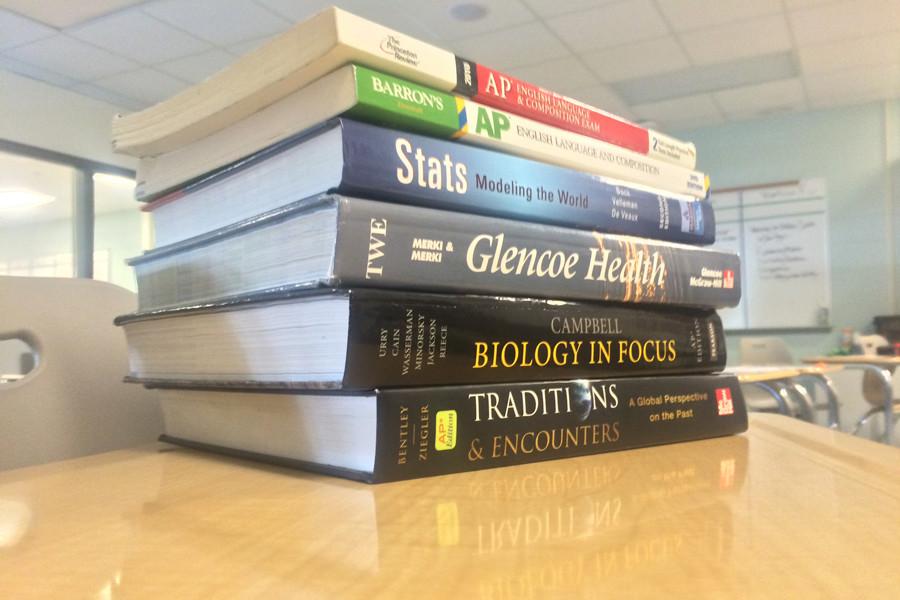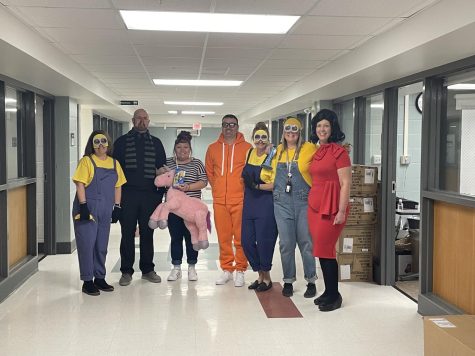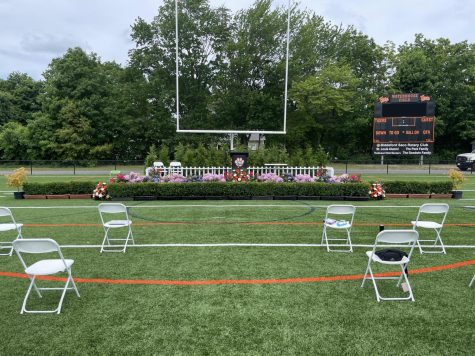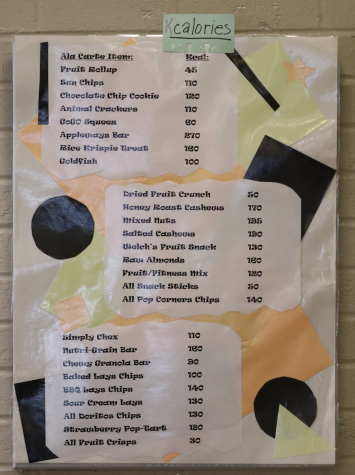Benefits of taking Advanced Placement classes in high school
Taking AP classes is a difficult experience that can have major rewards as outcomes.
March 3, 2015
All high school students have the possibility to save hundreds to thousands of dollars when it comes to college, just by taking Advanced Placement courses.
Advanced Placement (AP) classes can be taken by any student between sophomore and senior year, and count as a college credit.
The main factor that saves a lot of money when it comes to AP classes are the tests, instead of the whole courses. Jessica Larson, AP Coordinator, studies on the savings.
“In the average Maine college it’s about $135 per credit, so you’re looking at three credit course a year which is what our APs will usually cover, English sometimes four,” said Larson. “Then you talk about your books, and any other fees, like using their lab. You’re looking at saving from $1,000 to more expensive private college will probably be $2,500 per course. The AP test only cost $90.”
Advanced Placement courses that BHS offers range from World History to Biology, with more options mixed in. If that’s not enough, BHS allows students to go to Thornton Academy to take AP classes there. For example, AP Physics.
“There are three students that are doing AP physics at Thornton Academy, because we didn’t have enough [students] sign up,” Larson said.
Students also get to learn about the subjects that are covered in great detail. They help people adapt to possible adapt to possible careers they may desire. Senior Sean Black shows the desire for learning and the need for these classes.
“There’s definitely a lot of [AP classes] I’m there because I know it’ll help me in the future. But there’s some of the time I really do enjoy learning the subject,” Black said.
Even though there are many benefits, the challenges that come with the courses are not for everyone. Sophomore Caleb Ball believes he doesn’t have enough time.
“I don’t take the AP classes because I don’t have enough time out of school,” said Ball. “I’m not scared about the difficulty, it’s just a lot more work ethic.”
Larson recommends students only take classes that they enjoy. Senior Marissa Heffernan, who took AP US History, AP Composition, and is taking AP World History, AP Environmental Science, and AP Literature, shows this when it comes to her math classes.
“My favorite subjects are English and history probably, and math I’ve never been a fan of,” said Heffernan. “With my hopeful majors in journalism and environmental science, higher level math like calculus and stats aren’t necessary things I need.”
There is still a sense of pressure to take these classes for sophomore Cassie Riley to help with her GPA.
“AP classes really bump up your GPA,” said Riley. “Honestly world history was something I was mildly interested in, but I knew I could get it done and get my GPA up.”
Many students believe that taking an AP class gives significantly more grading weight than a CP class, yet under the official Weighting of Grades it states that an A in an AP class is 4.5. An A+ in a CP class is 4.3. AP classes only boost GPA by one third of a letter grade.
There are other reasons why students decide to take AP classes. Senior Reed Gordon had a little more of a push to take these classes by his friends taking them.
“My choices in AP classes were definitely influenced by my friends,” said Gordon. “I associate them all with being highly intelligent so I knew that what they were taking that maybe I should take them as well.”
There are AP classes harder than CP classes, but there are many benefits that come from taking these classes.
“AP classes get my foot in the door,” said Heffernan. “It gets me a little edge over other people who haven’t taken them, looks good to colleges, it helps me out with my learning, and pushes me to do things I maybe thought I couldn’t.”










